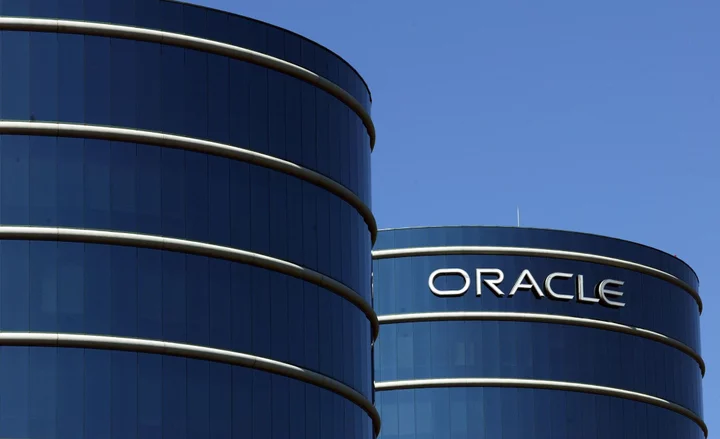
Oracle Falls After Reporting Slower Growth in Cloud Sales
Oracle Corp. reported cloud sales growth that slowed in the quarter, dimming enthusiasm about the software maker’s expansion
1970-01-01 08:00

The MGM Resorts website is offline due to a cybersecurity issue
MGM Resorts has shut down some of its systems as a result of a "cybersecurity issue," according to a company social media post on Monday.
1970-01-01 08:00
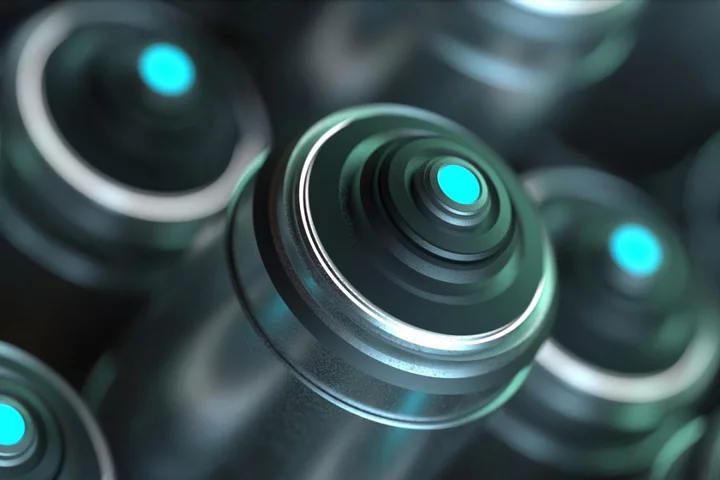
New invention could herald ‘battery revolution’, scientists say
Researchers have invented a new battery that they claim could have profound implications for the future of energy storage and renewable technologies. The lithium-based redox-flow battery, developed by a team at the University of Cincinnati, could prove crucial for wind and solar operations, where large-scale batteries are needed to store energy during times of overproduction and release it when production drops off. “Energy generation and energy consumption is always mismatched,” said Jimmy Jiang, who led the research at the University of Cincinnati. “That’s why it’s important to have a device that can store that energy temporarily and release it when it’s needed.” The novel design removes the membrane that separates the positive and negative sides of the battery, which is one of the most expensive parts of this type of battery and has previously hindered development. The membrane-free battery exhibited high voltage and energy density that could potentially meet the demands of large-scale green energy operations at an economically viable cost for the first time. “This design significantly decreases material costs,” said Soumalya Sinha, a visiting professor at the University of Cincinnati who was involved in the research. “We’re trying to achieve the same performance at a cheaper cost.” The team has submitted patent applications for the design, which Dr Jiang said will herald a “battery revolution” within the next 20 years. “I am confident about that,” he said. “There is a lot of intense research going into pushing the boundaries of battery performance.” The research was detailed in a paper, titled ‘Development of high-voltage and high-energy membrane-free nonaqueous lithium-based organic redox flow batteries’, published in the journal Nature Communications. Read More Volcano discovery could power electric cars for decades, scientists say
1970-01-01 08:00
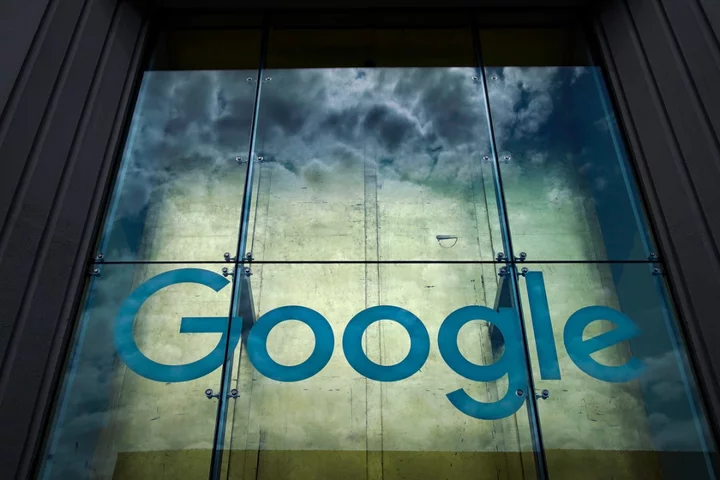
Google goes to court in what could be the biggest tech trial in a generation
Google and the US Justice Department are beginning what might be the most decisive tech trial in a generation. The lawsuit could have substantial consequences – not only for the search giant, but for its rivals such as Apple and Meta, and the technology industry more broadly. The antitrust trial will examine claims from critics that Google has unfairly used its power to become dominant in a variety of parts of technology, in particular its search engine. The United States will argue Google didn’t play by the rules in its efforts to dominate online search in a trial seen as a battle for the soul of the Internet. The US Justice Department is expected to detail how Google paid billions of dollars annually to device makers like Apple, wireless companies like AT&T and browser makers like Mozilla to keep Google‘s search engine atop the leader board. DuckDuckGo has also complained, for example, that removing Google as the default search engine on a device and replacing it with DuckDuckGo takes too many steps, helping keep them to a measly 2.3% market share. DuckDuckGo, Microsoft and Yahoo are among a long list of Google competitors who will be watching the trial closely. “Google makes it unduly difficult to use DuckDuckGo by default. We’re glad this issue is finally going to have its day in court,” said DuckDuckGo spokesman Kamyl Bazbaz who said thatGoogle had a “stranglehold on major distribution points for more than a decade.” Google has denied wrongdoing and is prepared to vigorously defend itself. The legal fight has huge implications for Big Tech, which has been accused of buying or strangling small competitors but has insulated itself against many accusations of breaking antitrust law because the services the companies provide to users are free, as in the case of Alphabet’s Google and Facebook, or low price, as in the case of Amazon.com. “It would be difficult to overstate the importance of this case, particularly for monopolies and companies with significant market share,” antitrust lawyer Luke Hasskamp told Reuters. “This will be a major case, particularly for the major tech companies of the world (Google, Apple, Twitter, and others), which have grown to have an outsized role in nearly all our lives,” he added. Previous antitrust trials of similar importance include Microsoft, filed in 1998, and AT&T, filed in 1974. The AT&T breakup in 1982 is credited with paving the way for the modern cell phone industry while the fight with Microsoft is credited with opening space for Google and others on the internet. Congress tried to rein in Big Tech last year but largely missed. It considered bills to check the market power of the companies, like legislation to prevent them from preferencing their own products, but failed to pass the most aggressive of them. Big Tech’s rivals now pin their hope on Judge Amit Mehta, who was nominated by former President Barack Obama to the U.S. District Court for the District of Columbia. The lawsuit that goes to trial was brought by former President Donald Trump’s Justice Department. In a rare show of bipartisan agreement, President Joe Biden’s Justice Department has pressed on with the lawsuit and filed a second one against Google in January focused on advertising technology. Judge Mehta will decide if Google has broken antitrust law in this first trial, and, if so, what should be done. The government has asked the judge to order Google to stop any illegal activity but also urged “structural relief as needed,” raising the possibility that the tech giant could be ordered broken up. The government’s strongest arguments are those against Google‘s revenue sharing agreements with Android makers, which requires Google to be the only search on the smartphone in exchange for a percentage of search advertising revenue, said Daniel McCuaig, a partner at Cohen Milstein who was formerly with the U.S. Justice Department’s Antitrust Division. Additional reporting by Reuters Read More AI can help generate synthetic viruses and spark pandemics, warns ex-Google executive Google boss says he wants to make people ‘shrug’ How Google reshaped the world – and is about to do it all over again AI is using vast amounts of water Elon Musk says monkeys implanted with Neuralink brain chips were ‘close to death’ Volcano discovery could power electric cars for decades, scientists say
1970-01-01 08:00
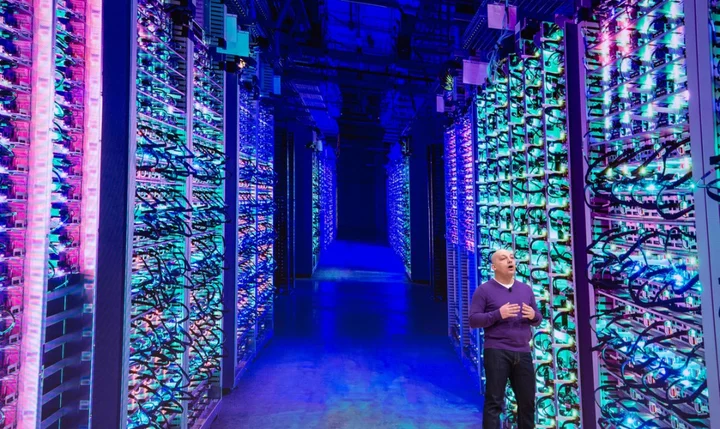
AI is using vast amounts of water
Artificial intelligence is using gallons upon gallons of water. Microsoft alone used more than 2,500 Olympic-sized swimming pools of water in its data centres last year. The latest numbers are leading to yet more questions about the sustainability and environmental dangers of the growth of artificial intelligence and related technology. Artificial intelligence requires vast computing resources, undertaking deeply complex calculations on behalf of people around the world. AI systems tend to be run in the cloud rather than on individual people’s computers, meaning that companies running them must operate vast server farms to deal with the queries of their users. Those server farms in turn need to pump in water to cool themselves down, because of the heat generated by those computers. That has long been a concern for environmentalists, but the sharp growth in artificial intelligence has led to even more use. Microsoft’s water consumption rose 34 per cent between 2021 and 2022, according to its latest environmental report, highlighted by the Associated Press. It was up to almost 1.7 billion gallons. Not all of that is from artificial intelligence. But Shaolei Ren, a researcher at the University of California, Riverside working to better understand the environmental impact of AI told the AP that the “majority of the growth” is because of the technology. Google also said that its water use had increased by 20 per cent over the same period. That varied across its different data centres, which are based in different parts of the US. For each 5 to 50 prompts, or questions, put to ChatGPT, it uses 500 millilitres of water, according to a paper that will be published by Professor Ren and his team later this year. Many technology companies have expressed concerns about their own water use, and how to minimise any negative effects of their data centres. The environmental concerns can be especially pressing because the use of water can be focused in particular areas around a data centre, meaning that the damage may not be spread. Google said last year for instance that “Wherever we use water, we are committed to doing so responsibly”. That includes analysing where water is being used and how much stress it might put on the surrounding area, for instance. Read More AI can help generate synthetic viruses and spark pandemics, warns ex-Google executive China’s ‘government-approved’ AI chatbot says Taiwan invasion likely Google launches AI to go to meetings for you
1970-01-01 08:00

New App Takes You Inside the Edinburgh of the 16th Century
Researchers have reconstructed how the Scottish city would have looked shortly before it was largely destroyed by the English army in 1544.
1970-01-01 08:00

EU antitrust regulators halt Amazon, iRobot probe, await info
BRUSSELS EU antitrust regulators have delayed their investigation into Amazon's $1.7 billion acquisition of robot vacuum cleaner maker
1970-01-01 08:00

Jeff Bezos Is Helping to Build a Clock Meant to Keep Time for 10,000 Years
It's 500 feet tall and is being built inside of a mountain.
1970-01-01 08:00
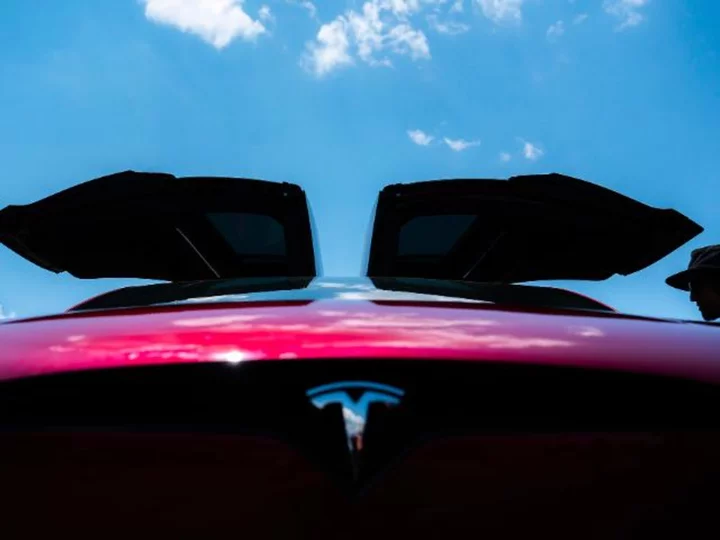
Tesla shares jump after Morgan Stanley predicts Dojo supercomputer could add $500 billion in market value
Tesla's Dojo supercomputer could fuel a $500 billion jump in the electric vehicle maker's market value, analysts at Morgan Stanley said in a note Monday.
1970-01-01 08:00
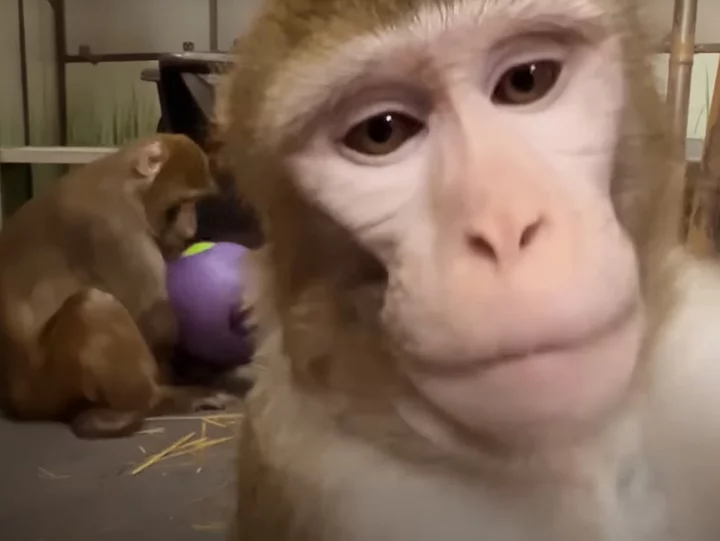
Elon Musk says monkeys implanted with Neuralink brain chips were ‘close to death’
Elon Musk has denied reports that his brain implant startup Neuralink killed monkeys during research experiments, claiming instead that tests were only done on “terminal” primates. Neuralink admitted to euthanizing eight animals during trials of its brain-computer interface technology last year, however denied accusations from the Physicians Committee for Responsible Medicine (PCRM) that it subjected monkeys to “extreme suffering”. The animal rights group accused Neuralink of “inadequate animal care” at the company’s lab at the University of California’s Davis Primate Centre, alleging that nine violations of the Animal Welfare Act were committed. Neuralink defended its animal testing record in a blog post last year, claiming that it is “absolutely committed to working with animals in the most humane and ethical way possible”. The firm also noted that “all novel medical devices and treatments” must be tested on animals before they can be trialled on humans. “The use of every animal was extensively planned and considered to balance scientific discovery with the ethical use of animals,” the blog post stated. Neuralink CEO Elon Musk has now added more details about the startup’s animal testing practices, after the issue was brought up by one of his followers on X, formerly known as Twitter. “No monkey has died as a result of a Neuralink implant,” Mr Elon Musk posted to X. “First our early implants, to minimise risk to healthy monkeys, we chose terminal monkeys (close to death already).” Mr Musk founded Neuralink in 2016 with the ultimate aim of merging artificial intelligence with the human brain. An implanted chip could improve hearing and vision, while also delivering “enhanced abilities” like greater reasoning and anxiety relief, according to the tech billionaire. Early applications of the technology will be for treating brain disorders and neurological conditions, though the company is yet to set a date for when its chips will be ready to use. In May, Neuralink revealed that it had received approval from the US Food and Drug Administration (FDA) to begin testing its technology on humans. Neuralink said that FDA approval “represents an important first step that will one day allow our technology to help many people”. Read More 10 ways AI will change the world – from curing cancer to wiping out humanity SpaceX launch of Starship rocket on hold amid ‘mishap investigation’ Famed tech journalist deletes X account with epic rant at Elon Musk First photo emerges of Elon Musk and his baby twins with Neuralink director
1970-01-01 08:00
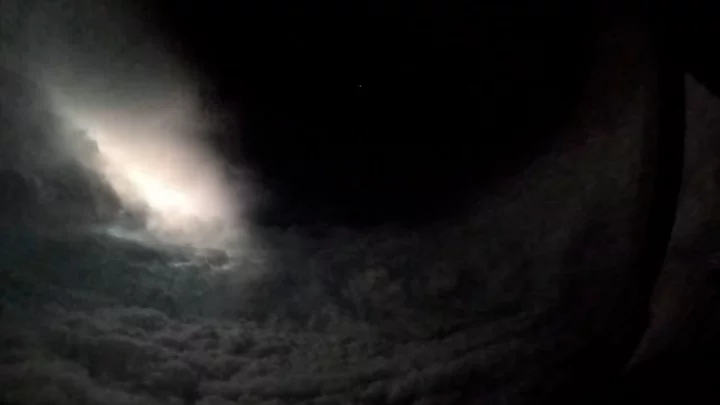
Storm chasers capture frightening footage from inside Hurricane Lee
Storm chasers filmed the inside of a hurricane and it looks just as terrifying as you might imagine it would. The footage taken from inside the eye of Hurricane Lee was captured on Friday (8 September) as the storm moved over the Atlantic Ocean. The video taken shows lightning striking inside the Category 4 hurricane, illuminating the cloud wall around it and with the black eye overhead. The stunning clip was captured by the U.S. Air Force Reserve's 53rd Weather Reconnaissance Squadron in Biloxi, Mississippi. They are affectionately known as the “Hurricane Hunters”. As a Category 4 storm, Hurricane Lee has sustained winds of between 130 to 156 mph. The storm was located off the coast of Puerto Rico and was forecast to move northwards. The footage was able to be captured thanks to the squadron’s WC-130J Hercules aircraft. These planes are specifically designed for flying weather reconnaissance and have equipment onboard including sensors and instruments to measure the profile of a hurricane’s wind, temperature and pressure. The Hercules aircraft can stay airborne for up to 18 hours ensuring the crew onboard can record the weather data over a long time period. In a statement released by the U.S. National Oceanic and Atmospheric Administration's (NOAA) National Hurricane Center, they were unable to determine what the impact of the storm might be on the country’s eastern coast yet. The statement read: “It remains too soon to know what level of impacts, if any, Lee might have along the U.S. East Coast and Atlantic Canada late this week.” Hurricane Lee is the fourth hurricane to be recorded during the 2023 Atlantic hurricane season, along with nine other named storms. Sign up to our free Indy100 weekly newsletter Have your say in our news democracy. Click the upvote icon at the top of the page to help raise this article through the indy100 rankings.
1970-01-01 08:00

The origin of Elon Musk's feud with Bill Gates, according to Musk's new biography
Bill Gates went to see Elon Musk in 2022, hoping to convince the fellow billionaire to give away more of his money -- the way the Microsoft founder had.
1970-01-01 08:00
